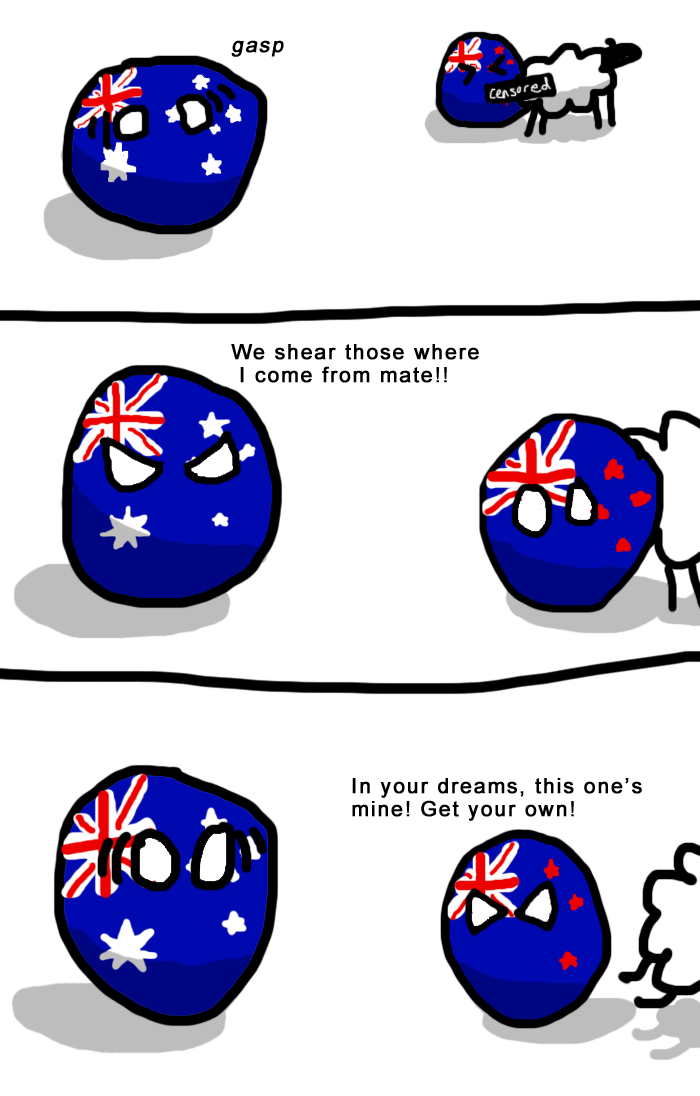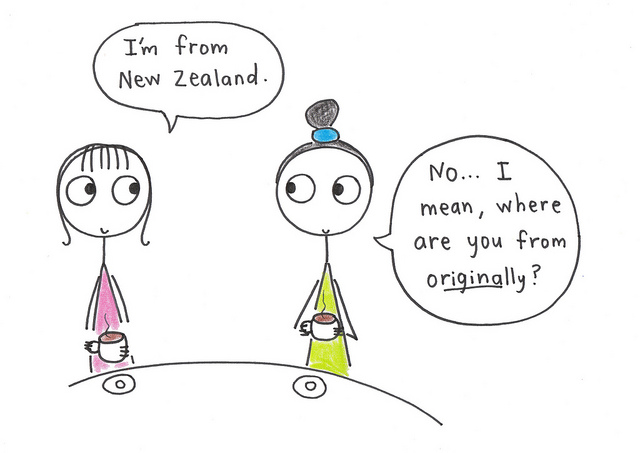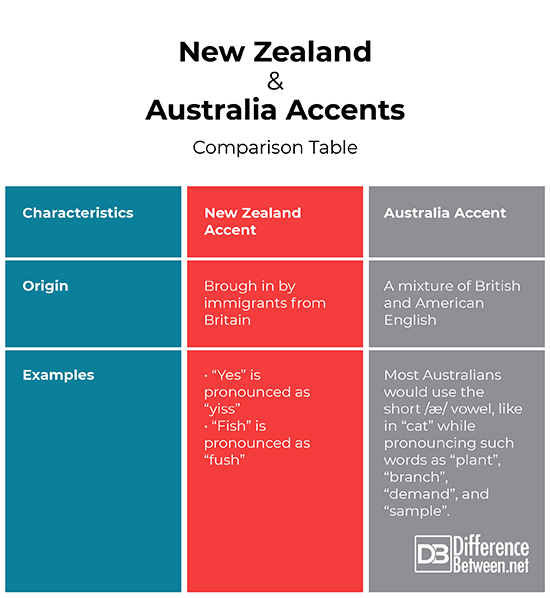Difference Between New Zealand Accent and Australian Accents
For third parties or people who are not used to hearing the two accents, there can be almost no differences for them. It could be completely impossible to know who an Aussie is and who is from New Zealand if they sat at one table. However, there exist some shifts and differences between the two accents, that it, the New Zealand and Australian.
The most common difference is from the way they pronounce some words. For example, a Kiwi will pronounce the word ‘haich’ with a silent letter ‘H’. Instead, they will read it as ‘aich’. Even though some Aussies also pronounce such words with silent ‘H’, this is common in all Kiwis.
What is the Origin of the Australian Accent?
The Australian accent came from an exposure of different dialects during the colonial times. Children who were born during the period during which Australia was a colony of Britain grew up in the midst of the widest range of dialects. The dialects were mainly from South East England, Ireland, and all over the British Isles. As a result, the native-born kids grew up using a new dialect.
Types of Australian Dialects
The Australian accent has three varieties namely:
- Broad associated with the late Steve Irwin.
- General, associated with the 27th Australian PM, Julia Gillard.
- Cultivated, associated with actress Cate Blanchett.
Origin of the New Zealand Accent
A five-year study conducted by Physicists from Edinburgh suggest that the accent came from Britain. This is because most of the New Zealand immigrants came from the British Isles. During the immigration, they landed with the British regional dialects.
Difference Between New Zealand and Australian Accents
-
Pronunciation of vowels
The main difference between the two accents is vowel pronunciation. Australian vowels are drawn out while New Zealanders switch such vowels as ‘I’ for something like a ‘u’. An example is pronouncing “fush instead of fish”.
-
Origin
The Australia accent is believed to have originated from native-born children who spoke a new dialect combining dialects from the British Isles. The Kiwi dialect, on the other hand, came with immigrants who entered New Zealand from Britain.
-
Composition
The New Zealand accent is spiced with different British dialect inputs while the Australian accent is a mixture of British and American English.
New Zealand Vs. Australia Accents: Comparison Table
Summary of New Zealand and Australian Accents
The term accent refers to a particular way of speaking a language. Many a time, most people confuse the Kiwi and Australian accents. However, it is clear there are certain differences ranging from the origin, vowels pronunciations, and composition.
- Difference Between Minecraft and Terraria - August 7, 2020
- Difference Between Alliteration and Onomatopoeia Poems - July 25, 2019
- Difference Between Certification and Licensure - July 24, 2019
Search DifferenceBetween.net :
5 Comments
Leave a Response
References :
[0]"The Sum Of Its Parts: Scientists Unravel The Origin Of Kiwi Accent". Heraldscotland, 2018, https://www.heraldscotland.com/news/12458874.the-sum-of-its-parts-scientists-unravel-the-origin-of-kiwi-accent/. Accessed 16 Nov 2018.
[1]"The 3 Types Of Australian Accents". Dialect Blog, 2018, http://dialectblog.com/2011/07/10/types-of-australian-accents/. Accessed 16 Nov 2018.
[2]Image credit: https://www.flickr.com/photos/thedailyenglishshow/16516296016
[3]Image credit: https://commons.wikimedia.org/wiki/File:Australian_accent_strikes_again.png




My observations as a dual Aussie / Kiwi:
word fish: Kiwi = fush, Aussie = feesh
word chips: Kiwi = chups, Aussie = cheeps
word better: Kiwi = bitter, Aussie = bedder
word Newcastle, NSW: Kiwis and Newcastle residents = “a” as in car: Aussie excluding residents of Newcastle, NSW = “a” as in cat.
Aussie accent has a much stronger Irish influence rather American English although that may be the same outcome. Australia was much more industrialised so stronger northern England influence while agriculture was mainly pastoral cattle with secondary arable.
NZ originally had more of an arable agricultural economy and has a southern England accent influence due to strong labourer migration from London and rural southern counties.
PS: flags cartoon is unbecoming…………..
having friends both Kiwi and Aussie, i totally agree with you.
also, i have SERIOUS doubt about the author of that article being by an MFA alumna of the University of Mass. Amherst
I also have doubts about the quality of the research that’s gone into this article. Our accent has a huge historical influence from Ireland. Miners from Cornwall also contributed. No mention about the early gold rush bringing in people from all over the world.
I am a 70 year old Australian and have never said plant, branch and demand with a short vowel like cat!! If I heard it spoken like that I would be thinking American not Australian.
Oh and by the way Aussies and Kiwis have no trouble telling the difference between the accents.
I’ve wondered about the pronunciation of “know”, “snow” and “show.” I hear it as “nah-oh”, etc.
Which accent does this?
The Australian accent was also heavily influenced by Cockney, which was not even mentioned above.